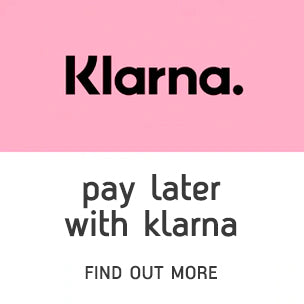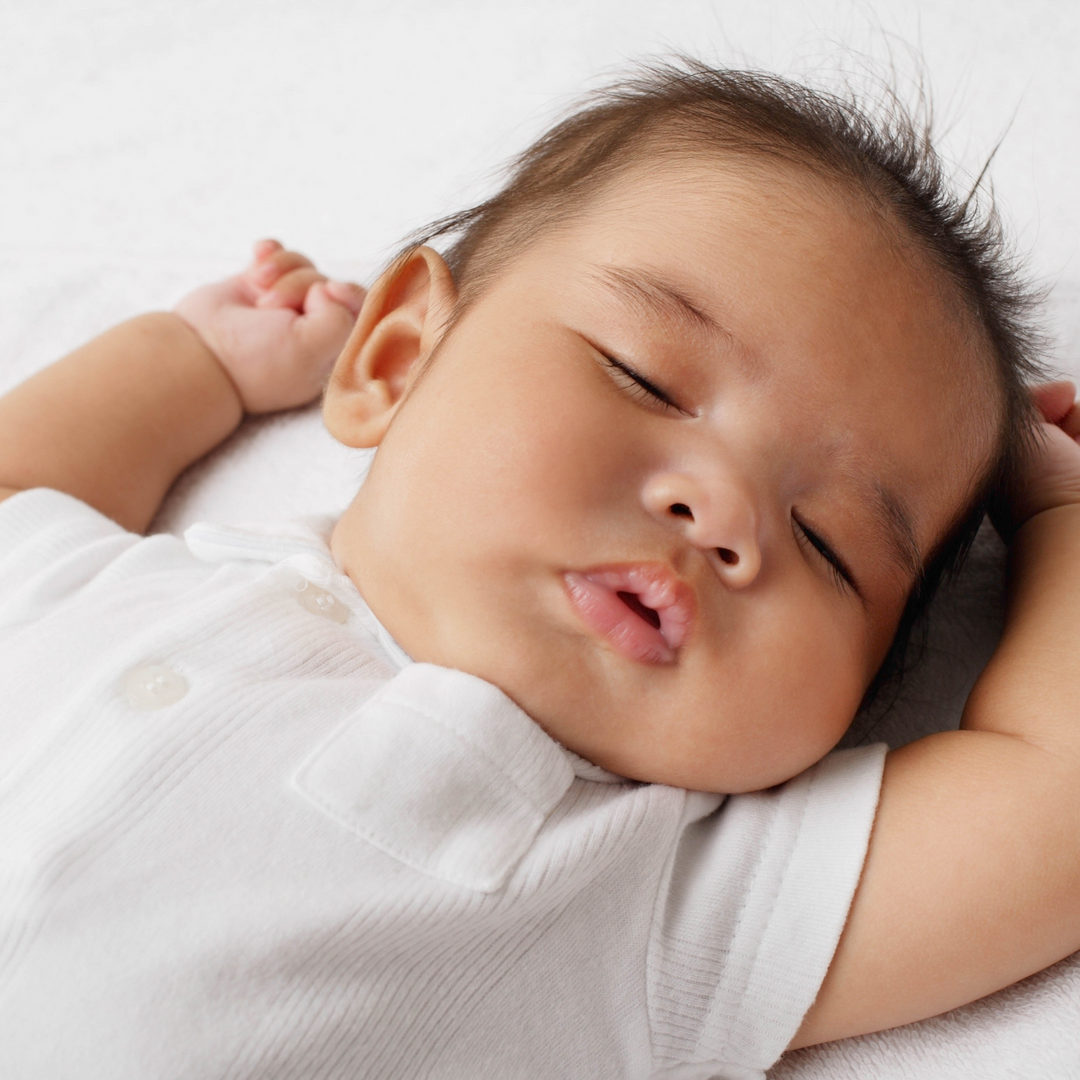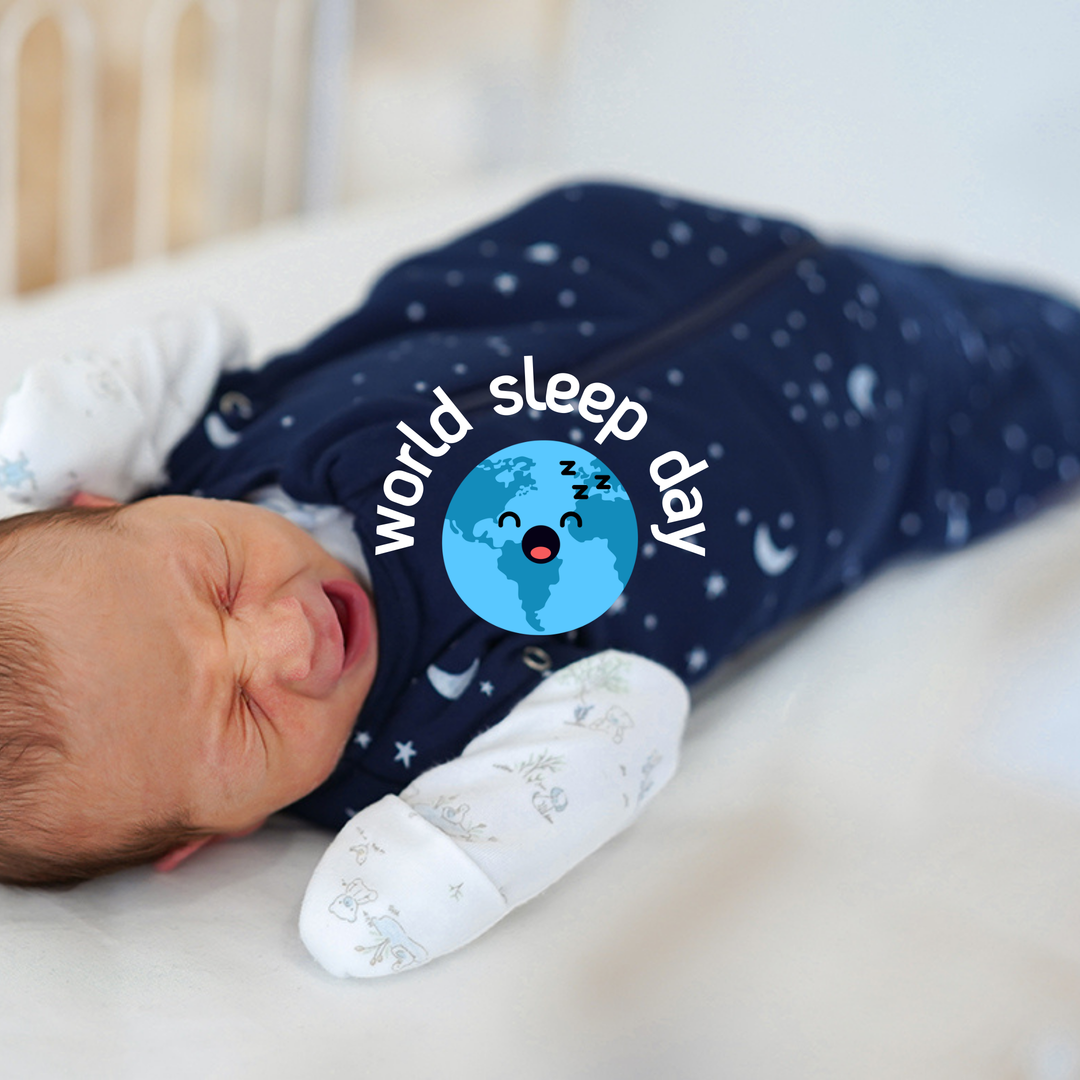Hiccups are a common and often funny experience for both babies and adults, but when it comes to newborns, they can leave parents wondering: Why do babies get hiccups, and is there anything you can do about it?
If you've ever noticed your little one hiccupping after a feed or just out of the blue, don’t worry — hiccups are totally normal for babies, and they usually go away on their own. In this blog, we’ll dive into what causes baby hiccups, how to stop them, and tips for preventing them in the future.
What Causes Hiccups in Babies?
The Science Behind Baby Hiccups
Hiccups happen when a baby’s diaphragm (the muscle below the lungs that helps with breathing) contracts unexpectedly. This sudden contraction can cause air to get sucked in quickly, which leads to the "hic" sound when the vocal cords snap shut.
For babies, this usually happens because of a few triggers, like feeding too fast, swallowing too much air, or even reflux. While hiccups might sound a bit alarming at first, they are typically harmless and usually pass after a few minutes.
Common Causes of Hiccups in Babies:
- Eating too fast or too much: Babies, especially newborns, can sometimes gulp their milk too quickly, causing their diaphragm to contract.
- Swallowing air while feeding: Whether breastfeeding or bottle-feeding, babies can swallow air, leading to hiccups.
- Reflux: Some babies experience acid reflux, which can also trigger hiccups.
- Excitement or stress: Emotional factors like feeling excited or nervous might bring on a bout of hiccups.
How to Get Rid of Baby Hiccups
Hiccups can be a bit annoying, but the good news is that there are simple things you can do to help your baby when they happen. Here are a few tricks that might help:
1. Burp Your Baby
Burping your baby during and after feeding helps release any trapped air in their stomach. If you're breastfeeding, try burping your baby when switching breasts. If you're bottle-feeding, burp your baby halfway through the feed.
2. Change Feeding Positions
Ensure your baby is sitting up during feeding. Whether you're breastfeeding or using a bottle, keep your little one in a more upright position. This can reduce the likelihood of swallowing excess air.
3. Slow Down the Feeding
If your baby frequently hiccups during or right after feeding, they may be eating too quickly. Try slowing down the feeding process or offering smaller, more frequent feeds to avoid overloading their tummy.
4. Hold Your Baby Upright After Feeding
After feeding, hold your baby in an upright position for about 15 to 20 minutes. This helps with digestion and can prevent hiccups from happening as often.
5. Check the Nipple Flow
For bottle-fed babies, make sure the nipple isn’t too fast or too slow. A nipple that flows too quickly may cause the baby to gulp too much, while one that flows too slowly might make your baby suck too hard, both of which can lead to hiccups.
6. Relax and Soothe Your Baby
Sometimes, the best thing to do is to help your baby calm down. Gentle rocking, soft sounds, or cuddles can help reduce any stress or excitement that might be triggering the hiccups.
How to Prevent Baby Hiccups
While you can’t entirely avoid hiccups, there are a few steps you can take to reduce the chances of them happening in the first place.
1. Feed When Calm
Try to feed your baby before they get too hungry or upset. Feeding when they are calm can help prevent excessive sucking or gulping.
2. Use Proper Latching During Breastfeeding
If you're breastfeeding, make sure your baby latches on properly to prevent them from swallowing air, which can lead to hiccups.
3. Check the Bottle for Air Bubbles
For bottle-feeding, ensure that the nipple is completely full of milk before offering it to your baby. This prevents air from being sucked into the bottle, which could contribute to hiccups.
4. Try Smaller, More Frequent Feeds
Feeding your baby smaller amounts more frequently can help avoid overfeeding, which may lead to hiccups or reflux.
When Should You Call a Doctor?
Most of the time, baby hiccups are harmless and will go away on their own. However, there are a few signs that could indicate a more serious issue:
- If the hiccups persist for a long period of time (e.g., more than 10 minutes).
- If your baby seems to be in discomfort or pain during hiccup episodes.
- If hiccups are accompanied by other concerning symptoms like vomiting, poor weight gain, or excessive fussiness.
If you're ever concerned, it’s always a good idea to reach out to your pediatrician for advice.
FAQs About Baby Hiccups
- Are hiccups after breastfeeding normal? Yes, it’s normal for babies to hiccup after breastfeeding, especially if they ate quickly or swallowed air.
- Should I ignore newborn hiccups? In most cases, yes. Hiccups in babies are usually harmless and go away on their own. If they seem to be bothering your baby or last for an unusually long time, you can try some of the remedies above or consult your pediatrician.
- How do I stop my baby’s hiccups? Try burping your baby during and after feeds, slowing down feeding, or holding your baby upright to help with digestion.
- What are hiccups? Hiccups are involuntary contractions of the diaphragm that cause the vocal cords to close suddenly, making the “hic” sound. They happen in babies for many of the same reasons they do in adults, like eating too fast or too much.
- Do hiccups mean a baby is full? Not necessarily. Hiccups can happen whether a baby is full or not, though they may occur more often if a baby has eaten too much or too quickly.
The Bottom Line
Baby hiccups are totally normal and usually nothing to worry about. They tend to go away on their own after a few minutes. By making a few small adjustments during feeding — like burping your baby or slowing down the pace — you can reduce the chances of hiccups happening and make your little one more comfortable.
If you ever have concerns, don’t hesitate to talk to your pediatrician. Most of the time, hiccups are just a quirky part of your baby’s development.











